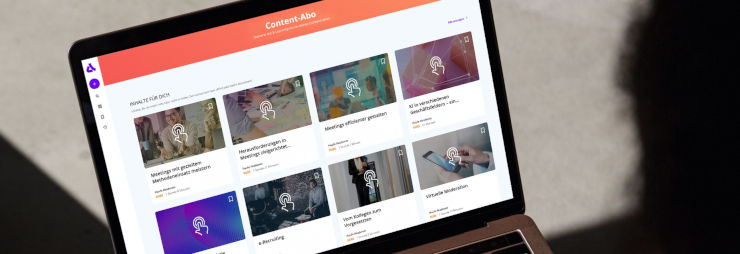Digital Research | E-Learning
Find and evaluate information competently

The modern working world, shaped by digitalization, challenges us every day with a complex reality in which things change rapidly. Your daily need for information is therefore very high. At the same time, the amount of information available at any time has reached unprecedented proportions. You can find an answer to almost any question on the Internet at any time. However, this huge amount of information can also be overwhelming if the number of search results explodes and you have very little time available.
This is precisely why it is important that you familiarize yourself with the basics of information literacy. The e-learning course will help you to structure your internet research in a structured and time-efficient way. Develop a gut feeling for confident use of the internet, an important aspect of digital literacy.
Contents
Digital research
- Different levels and relevance of information literacy.
- Search and filter.
Start the search
- Know the goal: What was the actual question? And what result will get me further?
- Overview or strategic search.
- Which search access for which search intention?
- Different search approaches and their advantages and disadvantages.
- Search engines, algorithms and pre-sorted information.
- Rules for a successful search.
View results
- The most important contribution types and the initial selection.
- Further procedure and search strategy.
Rate information
- Characteristics of information.
- Criteria catalog for evaluating credibility, reliability and seriousness.
- every can contribute: Content from private individuals and communities.
- Function and mode of action of fake news.
End the search
- Decision-making: Do I have the information I need?
- Extend the search if required.
- Organize and retrieve information.
Your benefit
- You recognize the importance of information literacy for your daily life.
- You will receive suggestions on how to develop your personal search strategy: From narrowing down your topic and finding the right entry point to deciding to end the search. A targeted approach will save you time in the long term.
- You know the basic workings of search engines and understand the order of your search results.
- You can differentiate between the most important types of posts on the Internet and their different intentions and purposes.
- You can decide which information matches your search and check it for credibility, seriousness and reliability based on specific criteria.
- You will find a reflective and responsible way of dealing with false information.
- You choose a suitable way to organize and find information.
Methods
Each learning unit addresses a specific question on the topic. The modular structure of the learning units gives you the flexibility to choose which topics you want to work on and when.
You will learn the theoretical basics, which you can reflect on and apply in practice with the help of specific instructions and exercises.
You learn with high-quality expert videos, audios, checklists and guides.
Recommended for
Specialists and managers from all sectors who want to develop basic skills for the digitalized world of work - so-called digital literacies.




